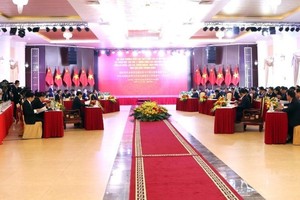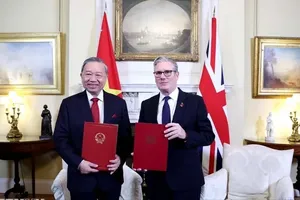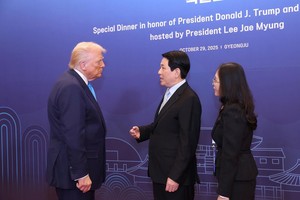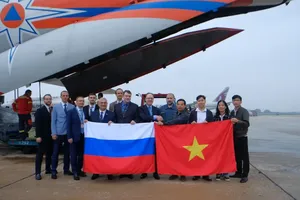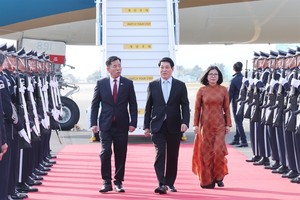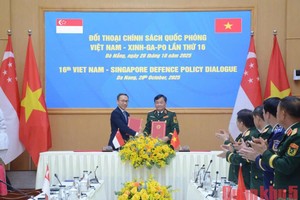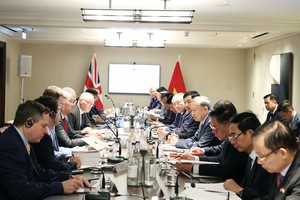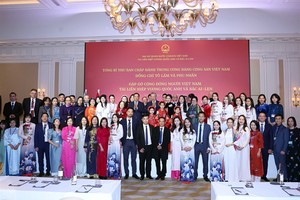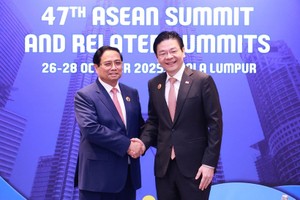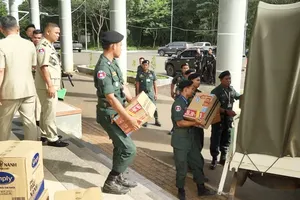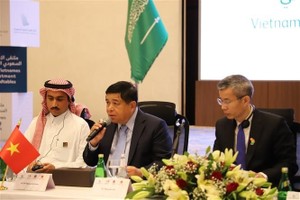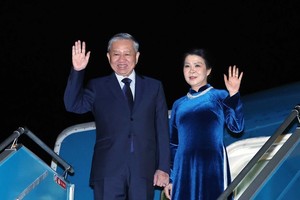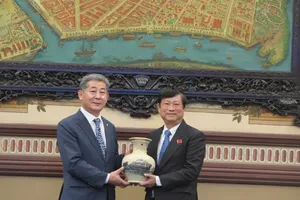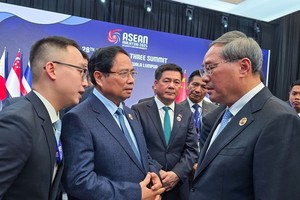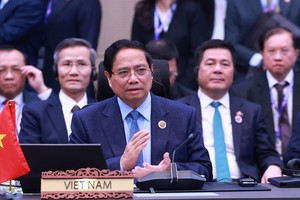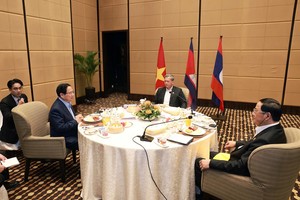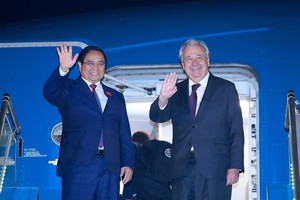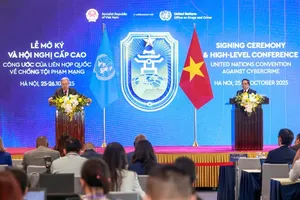US President Barack Obama pledged Sunday to send "non-lethal" aid to the Syrian rebels while peace envoy Kofi Annan piled diplomatic pressure on the regime by seeking the backing of its ally Russia.
The announcement was the most overt show of US support for the rebels to date and is certain to irritate Russia following its fierce condemnation of the West's calls on President Bashar al-Assad to step down.
In Syria, blasts rocked the flashpoint city of Homs as the regime pressed on with its assault on protest hubs, while rebels attacked a military base in Damascus province, activists and monitors said.
Obama said at talks with Turkish Prime Minister Recep Tayyip Erdogan ahead of a nuclear security summit in Seoul that they agreed "there should be a process" of transition to a "legitimate government" in Syria.
A top US national security official said the delivery of medical aid and other urgent supplies would top the agenda of a "Friends of Syria" meeting scheduled for April 1 in Istanbul.
The meeting was denounced by Russia on Friday amid contradictory signals from Moscow about the extent of its divide over the crisis with the West.
Annan's meeting with Russian President Dmitry Medvedev comes just days after Moscow followed through on unprecedented criticism of Assad by finally backing a UN Security Council call on his forces to pull out of protest cities.
Assad has thus far shown few signs of complying. At least 28 civilians were reported killed on Saturday and monitors reported new fighting stretching from the outskirts of the capital Damascus to Syria's norther border with Turkey.
Sunday witnessed "heavy shelling of Khaldiyeh, Hamidiyeh and Old Homs neighbourhoods by the regime's army, and explosions shook the whole city," the Local Coordination Committees of Syria said.
Opposition fighters responded to their heavy recent losses by setting up a council to unify their ranks. The Syrian Observatory for Human Rights said the rebels fired rocket-propelled grenades at a military facility near Damascus on Sunday.
Moscow on Wednesday backed a non-binding Security Council statement after vetoing two previous resolutions, but only after making sure it contained no implicit threat of further action should Assad fail to comply.
The Kremlin also underscored its continued disagreement with the West by voting against a UN Human Rights Council resolution condemning "appalling human rights violations in Syria" because it made no demands on the armed opposition.
Washington's UN ambassador Susan Rice conceded that Russia had thus far made only "a modest step" toward ending a campaign the opposition says has claimed more than 9,100 lives.
Russia has been watching with alarm as a year of Western-backed Arab revolts swept aside veteran leaders who had longstanding ties with Moscow.
The return of Russian strongman Vladimir Putin to a third term as president amid a wave of what the Kremlin has branded as US-funded protests in Moscow has added further bitterness to the tone of the diplomatic debate on Syria.
Medvedev's office said ahead of Annan's arrival that halting the bloodshed was impossible "without ending the foreign supply of arms to the opposition and its political support".
Yet Russian officials appear to be preparing for Assad's eventual departure even while refusing to accept his loss of full legitimacy -- a stance taken by most Western powers since last year.
"Assad's position is difficult," one unnamed Kremlin official told Interfax on Friday. "I do not know whether he has prospects or not. But no-one is predicting another 10 years in power for him."
Moscow has done less in recent weeks to hide that it was starting to lose patience with Assad in spite of his commitment to massive new Russian arms purchases and delivery of key naval access to the Mediterranean Sea.
A top Kremlin-linked lawmaker said this week that Assad should treat the UN statement as "an insistent recommendation" whose implementation would determine the future course of relations between the two countries.
"Russia's future position on the conflict will depend on how successfully (Assad) complies with the provisions spelled out in the Security Council statement," said senior ruling party member Mikhail Margelov.
The clear shift in tone but persistent refusal to join international calls for Assad to go means that "Russia is not wedded to this regime," said Kommersant foreign affairs correspondent Maxim Yusin.
"Russia's main goal is to make sure that Assad's opponents do not grab all the power -- this would see Russia lose everything it has in Syria," said Yusin.
"Annan's visit should tell us what Russia is willing to do should Assad not listen on this occasion."
Annan was set to follow his talks in Moscow with a two-day visit starting Tuesday to China, the other veto-wielding Security Council member resisting efforts to condemn Assad.

